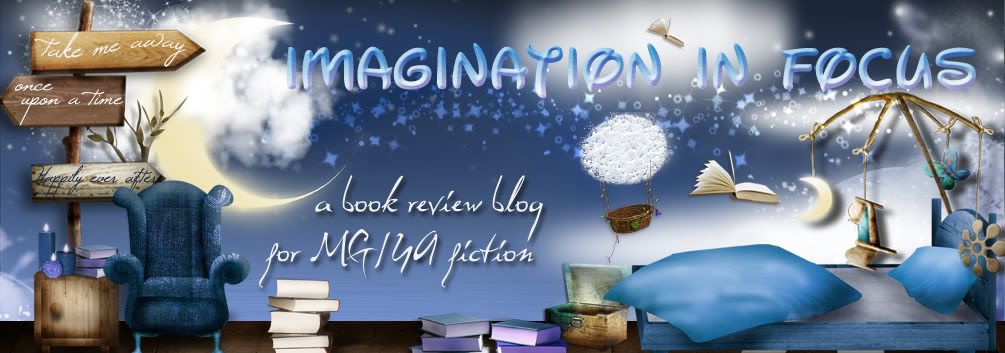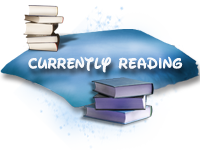
Have you ever thought about what it is that makes a book truly special for you?
I was so confident that I knew what my reading tastes were, and they usually involved richly detailed and elaborate worldbuilding (best exemplified in fantasy or dystopian novels), a thrilling plot with multiple twists and turns, and characters I could relate to (meaning characters who had some kind of resemblance to me personally, whether in attitude, beliefs, family life and background, shared experiences, etc). So I'm wondering how exactly a
contemporary fiction novel, with absolutely no fantasy or dystopian elements (hence no world-building), no truly elaborate plotlines having to do with saving the world from evil and whatnot, and characters whose experiences (thank God) have been worlds away different from my own, could leave this much of an impression on me. Unlike
The Knife of Never Letting Go,
Jellicoe Road was a rather positive read, and I wasn't really expecting that. Based on reviews I'd read, I was expecting
Jellicoe to be ultra-depressing, melancholy, and melodramatic. If you know anything about the book, you'll probably be aware that the majority of the characters come from very troubling backgrounds, and it's one of those books where the poor characters just keep getting sucker-punched over and over with drama. But...what I discovered was way more than that. I'll say more about the protagonist, Taylor Markham, and how much I enjoyed her narrative in my review, but I really, REALLY like characters who are at least tuned in to their emotions and make an effort to make sense of their life. What made Taylor seem real and also cheer-worthy to me was her imperfectness. She wasn't under some kind of delusion that she could do no wrong, or that her bad circumstances gave her a pass to live life however she wanted. She had some issues dealing with other people, sure, but she was very much
aware of that, and her narrative revealed an honesty that I don't often see in main characters...she was a wounded and sometimes vulnerable character, and *
that* is what made me care. Author Marchetta didn't set out to create a Super Girl character, but she didn't create a Cry-baby either. For me, she succeeded in really showcasing a truly human character. And the story wasn't just Melancholyville. Yeah, Taylor and Jonah Griggs (who is just about the PERFECT guy and love interest ever written) were very broken people trying to mend themselves, but the story had some very uplifting moments, too. And I like uplifting moments as much as the next slightly emotionally-inclined reader, but what really tipped the scales to the
Love It side, for me, was the strong portrayals of friendship.
I loved the interactions and found them incredibly accurate and at the same time inspiring. Guys,
this is how to portray teen friendships.
This is how to portray teenage relationships.
THIS BOOK right here. And the funny thing is, for a book set in a school for (mostly) "troubled" kids...there really wasn't a lot of questionable behavior. Like, at all. That
really surprised me.
I guess I'm just so used to authors presenting me with irresponsible kids and the 'ohh, they're just teenagers!' crap that I expect every teen character to stumble over drunk at least once. So I caught myself every hundred pages going "wow, now
this is what I'm talking about" or "huh, I thought this was supposed to be a 'heavily dramatic' book...?" So the conclusion seems to be: author Melina Marchetta knows how to write drama, knows how to invest her readers in the stories of the characters, and knows how to create real, dynamic characters, all without melodrama or cliches.
Also...the setting. Every few years I seem to pick a new location to obsess about. When I was in high school and the first few years of college, it was England. I was obsessed with England. Then Scotland. Now it's Australia. Boyo, I can't get enough Australia. I love that freaking country so much. And I think that a big reason why I loved this book was the unique feel to it...this wasn't
yet another book about American teenagers, watching American TV shows, speaking in American slang...(yawn). For me, there's just something extra unique about a 'foreign' book, almost like watching a 'foreign' film or a foreign TV show (ohh, and I especially liked the "H&A" reference, and I felt a little bit of pride - as an American - for actually knowing a thing or two about that show. And also, 'pashing.' Feeling a bit of pride that I know what that word means, too!).
When I picked up
Jellicoe, I was pretty apprehensive, and truth be told, I just wanted to see what all the fuss was about. I never expected it to be so enjoyable, nor did I expect it to be so special. But I finished it Thursday and I still can't quite bring myself to start the next book in my pile. My mind still keeps going back to that school on the Jellicoe Road. So what makes a story special? What makes a book truly stay with you? Judging by the droning of this post, I'm still not sure what the answer is. Over the last few days I've read two major-impact books:
The Knife of Never Letting Go freaked me out and the hope presented there was like a tiny candle in a darkened room, while the hope presented in
Jellicoe was like getting rid of darkness by opening your eyes and acknowledging the daylight around you. Crappy simile aside...that's all I have to say for now. My reading preferences are definitely changing, because I'm pretty confident I would not have picked this book up last year at this time. Just wanted to acknowledge that.
I'm going to write a (hopefully more objective and tightened) review of
Jellicoe, but I did want to close with some memorable quotes from the novel, accompanied by pictures I found that matched the story's setting. All of the following are taken from small towns in New South Wales, where the story is set, and some of the pictures feature the Lachlan River, apparently flows by the school.
 Memorable Quotes
Memorable Quotes
According to Dickens, the first rule of human nature is self-preservation and when I forgive him for writing a character as pathetic as Oliver Twist, I'll thank him for the advice.
(pg 8)
Where Webb's memories of childhood were idyllic and earthy, Jude's reeked of indifferen ce. Webb read fantasy; Jude read realism. Webb believed a tree house was the perfect place for gaining a different perspective on the world; whereas Jude saw it as perfect for surveillance and working out who or what was a threat to them. They argued about sports codes and song lyrics. Jude saw the rain-dirty vallye; Webb saw Brigadoon. Yet despite all this, they connected, and the nights they spent in the tree house discussing their brave new worlds and not so brave emotions made everything else in their lives insignificant
ce. Webb read fantasy; Jude read realism. Webb believed a tree house was the perfect place for gaining a different perspective on the world; whereas Jude saw it as perfect for surveillance and working out who or what was a threat to them. They argued about sports codes and song lyrics. Jude saw the rain-dirty vallye; Webb saw Brigadoon. Yet despite all this, they connected, and the nights they spent in the tree house discussing their brave new worlds and not so brave emotions made everything else in their lives insignificant
(pg 32).
And I told him everything. About my first memory, sitting on the shoulders of a giant who I know can only be my father. Of touching the sky. Of lying between two people  who read me stories of wild things and journeys with dragons, the soft hum of their voices speaking of love and serenity. See, I remember love. That's what people don't understand. And what I also remember is that in telling that tale to the Cadet on the train I got a glimpse of peace.
who read me stories of wild things and journeys with dragons, the soft hum of their voices speaking of love and serenity. See, I remember love. That's what people don't understand. And what I also remember is that in telling that tale to the Cadet on the train I got a glimpse of peace.
(pg 58)
Is a person worth more because they have someone to grieve for them? (pg 62)
"Any pain inflicted on Richard warms my heart and it warms yours as well. Go on, admit it. When he hit the ground and the blood went flying and you knew in your heart his nose was broken, didn't you just want to jump for joy and stomp on his ugly face?" I look at him, shaking my head. "Actually, no, Ben. I didn't. I was thinking that I'd rather be in the comm0n-room watching 'Home and Away.'" "You know what your problem is? You don't know how to enjoy yourself. That was fun. That was better than 'Home and Away.'" (pg 168)
 How does Jonah Griggs get to be a ten? He sits on a train with me when we're fourteen and he weeps, tearing at his hair, bashing his head with the palm of his hand, self-hatred pouring out of him like blood from a gut wound in a war movie, and for the first time in my whole life I have a purpose. I am the holder of the grief and pain and guilt and passion of Jonah Griggs and as we sit huddled on the floor of the carriage, he allows me to hold him, to say, "Shhh, Jonah, it wasn't your fault." While his body still shakes from the convulsions, he takes hold of my hand and links my fingers with his and I feel someone else's pain for the first time that I can remember.
How does Jonah Griggs get to be a ten? He sits on a train with me when we're fourteen and he weeps, tearing at his hair, bashing his head with the palm of his hand, self-hatred pouring out of him like blood from a gut wound in a war movie, and for the first time in my whole life I have a purpose. I am the holder of the grief and pain and guilt and passion of Jonah Griggs and as we sit huddled on the floor of the carriage, he allows me to hold him, to say, "Shhh, Jonah, it wasn't your fault." While his body still shakes from the convulsions, he takes hold of my hand and links my fingers with his and I feel someone else's pain for the first time that I can remember.
(pg 183)
He stops and looks at me. "I'm here because of you. You're my priority. Your happiness, in some...way, is tuned in to mine. Get that through your thick skull. Would I like it any other way? Hell, yes, but I don't think that will be happening in my lifetime." (pg 320)
looks at me. "I'm here because of you. You're my priority. Your happiness, in some...way, is tuned in to mine. Get that through your thick skull. Would I like it any other way? Hell, yes, but I don't think that will be happening in my lifetime." (pg 320)
(Above picture: Darlinghurst Street, Kings Cross, Sydney, where scenes from the story take place)
"But grief makes a monster out of us sometimes, Taylor, and sometimes you say and do things to the people you love that you can't forgive yourself for."
But I won't let it go. "I'd forgive myself. To be with Jonah I'd do anything." (pg 404)
I watch Raffy's mother standing behind her chair, holding on to Raffy's long hair as if putting it into a ponytail and there's this pride on her face while she's touching her, like she's saying, "Look at my beautiful girl." It makes my eyes fill with tears and I quickly brush them away...It's not that I miss my mother. It's just that I miss the idea of what one would be.
(pg 222)
Stay tuned for the much shorter review!

 Jellicoe Road
Jellicoe Road The Knife of Never Letting Go
The Knife of Never Letting Go Red Moon Rising
Red Moon Rising Scrambled Eggs at Midnight
Scrambled Eggs at Midnight  Secondhand Charm
Secondhand Charm




















































